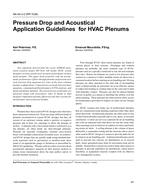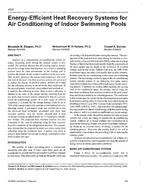The most important daylighting design parameters in designing an atrium include (1) the daylight factor requirement, (2) atrium canopy efficiency (transmittance), (3) atrium well configuration (well index), and (4) configuration of contiguous spaces (Boyer 1990). The first design parameter specifies the available illumination needed for the occupants, the adjacent spaces, and vegetation in the atrium space. The remaining parameters deal with not only the illumination levels but also the luminance distribution in the atrium space and the adjacent spaces. Previous studies (Boyer 1990, Degelman et al. 1988, Navvab and Selkowitz 1984) have demonstrated how these design parameters affect the illumination distribution in atrium spaces. The present work describes the development and the calibration results of an instrumentation system integrating conventional photometric methods and digital image-processing techniques to analyse and evaluate daylighting performance in atria in terms of illuminance levels and luminance distributions in sunlighted atria with design-stage scale models.
KEYWORDS: calculating, natural lighting, performance, atria, designing, models, calculating, daylight factor, transmittance, luminance, occupiers, plants, illuminance, instruments, calibrating, photometry, performance.
Citation: Symposium, ASHRAE Trans. 1994, Vol.100, Part 1,
Product Details
- Published:
- 1994
- File Size:
- 1 file , 1.3 MB
- Product Code(s):
- D-17788


